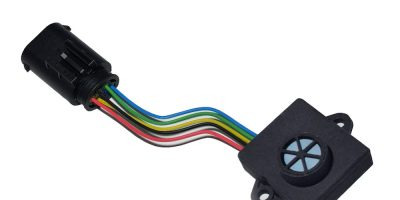Hydrogen sensors detect battery management system thermal runaway
To detect thermal runaway in battery management systems, the PGS4100 hydrogen sensors measure the change in thermal conductivity of the gas mixture within the battery management system compartments, said Posifa Technologies.
The PGS4100 hydrogen sensors detect hydrogen concentration in the air using the company’s MEMS hydrogen sensor technology which is claimed to enable faster reaction times for triggering battery failure alarms in electric vehicles (EVs), ensuring compliance with safety standards.
The PGS4100 series is designed with a relative humidity sensor and a barometric pressure sensor. This enables the sensor to counterbalance thermal conductivity changes influenced by humidity in air and elevation changes, enhancing accuracy, said the company. This level of precision enables the sensor to meet industry standards for flammable gas detection.
The surface mount hydrogen sensor is built around Posifa’s second generation thermal conductivity die and uses a pulsed waveform. It is encased in an IP6K9 compliant enclosure and equipped with a wire harness terminated with an automotive-grade connector.
The PGS4100 series supports analogue voltage and I2C digital outputs. Future models are slated to support MODBUS/UART and CAN bus protocols.
Key features include compensation for humidity and pressure, ensuring accurate functioning in harsh environments. In addition, the sensor remains non-reactive to “poisons” or contaminants, guaranteeing long-term stability and reliable performance, said Posifa.
“Because of the extremely small size of the sensor element and its straightforward principle of operation, Posifa’s hydrogen sensing technology can be offered in many different form factors and adapted to a very wide range of OEM requirements,” said Peng Tu, president and CEO of Posifa Technologies. He explained that the company can integrate hydrogen sensing solutions at various levels of modular integration for integration into any type of battery pack irrespective of ventilation technology or communication protocol, said Tu.
Formerly known as Posifa Microsystems, Posifa Technologies designs and manufactures high performance, low cost sensor and sensing solutions, including gas and liquid flow sensors, air velocity sensors, and vacuum sensors and gauges. The company’s products are designed to meet the needs of demanding applications in consumer electronics, HVAC, medical devices and data centres. Posifa serves its global customer base through direct sales and a network of distributors in the United States, Europe, Korea, and Taiwan. The company is headquartered in San Jose, California, with an office in Shenzhen, China.




